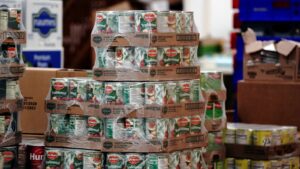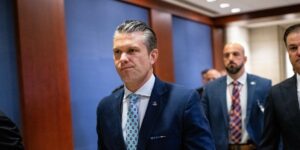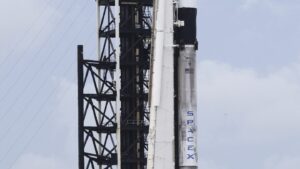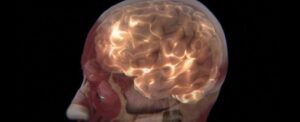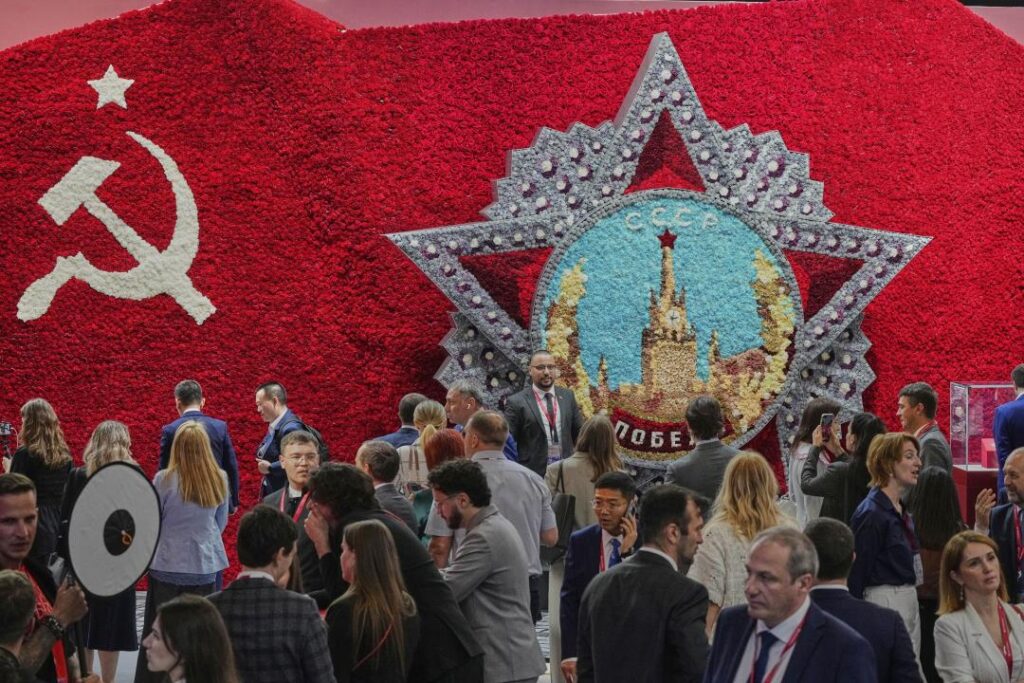
Russia’s economy is “on the brink of going into a recession,” according to Economy Minister Maxim Reshetnikov. This stark warning was delivered on Thursday during the St. Petersburg International Economic Forum, an annual event that aims to showcase Russia’s economic strength and attract foreign investment. Reshetnikov’s comments, reported by the Associated Press, underscore growing concerns about the country’s economic trajectory.
At the forum, Reshetnikov was quoted by Russian business news outlet RBC, stating, “The numbers indicate cooling, but all our numbers are (like) a rearview mirror. Judging by the way businesses currently feel and the indicators, we are already, it seems to me, on the brink of going into a recession.” His remarks highlight the precarious state of the Russian economy, which has been grappling with a range of challenges.
Economic Indicators Point to Trouble
The announcement comes as various economic indicators signal a slowdown in Russia’s economic activity. Analysts have pointed to declining industrial output, sluggish consumer spending, and a volatile ruble as key factors contributing to the downturn. The World Bank has also revised its growth forecast for Russia, projecting a modest 1.5% growth for the year, down from previous estimates.
According to sources within the Russian government, the ongoing conflict in Ukraine has exacerbated economic strains, leading to increased sanctions from Western nations. These sanctions have restricted access to international markets and technology, further hampering economic growth.
Historical Context and Current Challenges
This development follows a historical pattern of economic volatility in Russia. The country faced a severe recession in 2014-2015, triggered by a combination of falling oil prices and Western sanctions following the annexation of Crimea. The current situation bears similarities, with geopolitical tensions once again playing a significant role.
Meanwhile, the global economic environment remains uncertain, with inflationary pressures and supply chain disruptions affecting economies worldwide. Russia’s heavy reliance on energy exports makes it particularly vulnerable to fluctuations in global oil and gas prices.
Expert Opinions and Future Outlook
Economists are divided on the potential duration and severity of a recession in Russia. Some experts believe that strategic fiscal policies and increased domestic production could mitigate the impact. However, others caution that without significant structural reforms, the economy may struggle to recover quickly.
According to Alexei Kudrin, former Finance Minister and current head of the Russian Audit Chamber, “The government needs to focus on diversifying the economy and reducing dependency on oil and gas revenues. This is crucial for long-term stability.”
By the Numbers: Russia’s GDP growth is projected to slow to 1.5% in 2023, down from 3.5% in 2022, according to the World Bank.
Implications and Next Steps
The move represents a critical juncture for Russian policymakers. As the country navigates these economic challenges, there is a pressing need for strategic planning and international cooperation. The government has announced plans to boost investment in technology and innovation sectors, aiming to create new growth avenues.
Looking forward, the international community will closely monitor Russia’s economic policies and their impact on global markets. As the situation unfolds, the potential for diplomatic negotiations and easing of sanctions could play a pivotal role in shaping the country’s economic future.
In conclusion, while the Russian economy faces significant hurdles, the path forward will depend on the government’s ability to adapt and implement effective economic strategies. The coming months will be crucial in determining whether Russia can avert a prolonged recession and stabilize its economic landscape.
